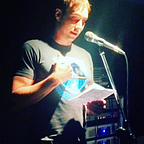A Trip to the New-Old World, Part 2
I, white man, post-colonial observer
Now arrived, Continued from Part 1
They were soaking in every word. They were grateful. In the final meditation, many cried as they reflected.
Amazement is an understatement. I compare them to American students and reflect on my insecurities and mindset at that age.
There I was, teaching “market-ready skills” and “leadership” to 250+ university students in East Africa — uncharted territory for me in every way.
70% were young women. All were Ugandan, Somali, Rwandan, Congonese, and other flavors of the continent.
What lessons could I translate, what connection could I bring? What could we discover? What was I doing here?
5 intensive days and nights of training them in design-thinking, self-awareness, presentation and speaking — we danced, sang, acknowledge our failures and set solutions, learned how to learn together.
They sang to me in unison, a shared African song of appreciation they all knew and believed, felt in the collective soul of the sound of words untranslated, I nearly wept. If my response was cheesy, I didn’t care. It was beautiful. It felt as love to me.
Conscience pains — An undeniable cynicism surfaced throughout the week.
A theory on draw of white Westerners to African charity work:
It is easier to feel immense gratitude here with less effort. To confront our own failures, in our own land, is a hard and present danger. We diverged from some imagined purity.
There must be some universal standard we can apply, right? If we can equate and simplify everyone in the world, we can see the quantified deficiencies. We hope for closure in repairing colonization, slavery, conquest.
Recently, I have referenced what a European wrote in his memoirs upon visiting New Mexico, quoting a Taos Pueblo Indian chief in the early 1900s:
“What are they seeking? The whites always want something; they are always uneasy and restless. We do not know what they want. We do not understand them. We think that they are mad.”
Carl Jung — Memories Dreams, Reflections
If we can apply our models the right way this time, apply them to someone else who does not have our wealth/norms/civilization, surely we can do right. The same seeking — of resource, land, power — we can turn them to apply the same models in positive ways. The guilt drives us to act with the same mindset of the cause.
Lest we accept there may be other ways the world can work. That we do not know what is best for an entire species finding their right, respective ways. Lest we learn.
The Former Chancellor
On the last day, there was a warm, older man in an aged suit, seated at our facilitators’ table. The bluntness of a honest elder immediately began to flow. His name was Mondo Kagonyera.
The words moved from wisdom, to seemingly contradictory details, flowing back to a fearless of his experiences.
He lived through British rule, served in the Ugandan Parliament. He studied and worked in the US. He was a professor of many disciplines. Though he admired our ethics and the acceptance of immigrants until only recently, a heavy statement cut deep into me:
“You Americans are not so kind to the Negroes.”
To the Students, he demonized ignorance, comparing education and learning to sharpening a traditional knife of his tribe — so sharp he used it to shave his head as a boy.
“They say they [criminals or soldiers or rebels] are acting like wild animals. They are not acting like animals. Wild animals do not do anything unnecessary… When someone acts this way [murders, loots] they are acting like [a type of] human. Be a real human being.”
Another reflection rang deep as he referenced his lighter skin tone:
“Though I have been assumed as other types, I assure you, I am one of you.”
As he handed out certificates to finalists(explained as crucial for documenting one’s achievements), each of the selected students was greeted directly. He asked a series of direct questions on their studies. He was kind and patient. Many students noted he would be the focus of their gratitude and prayers.
Feedback
The resort was all to us — a relic of a former Ugandan official’s wealth.
We focused on self-discovery rather than lecturing. Yet the overtone was one of superiority, and despite efforts to set diversity, it felt wrong to hold the power, to set the standards and guide them as a Mzungu (white). Mostly white organizers (Peace Corps plus our mixed team) spoke and encouraged all-black students.
A heart-breaking note stood out as we scanned:
“I learned I can do the same things the whites can do.”
It could have been written decades or centuries ago — by a child of segregation in America, South Africa, or any given place touched or cursed by conquest-as-racism. It could have been written today, and it was.
I sat in a clichéd turbulence of morose reflection, growing acceptance. The rewiring of my neurons hurt. Observed inequality and the collisions of culture set forth their recalibrations.
We drove back to Kampala.
My exhausted silence paused only to step out and guide the driver across the mounded dirt speedbumps in the villages along the way. The colors, the faces, the privilege of my life’s positions moved rich and red through my experience — like the soil being dug up on either side of us in pursuit of development.
